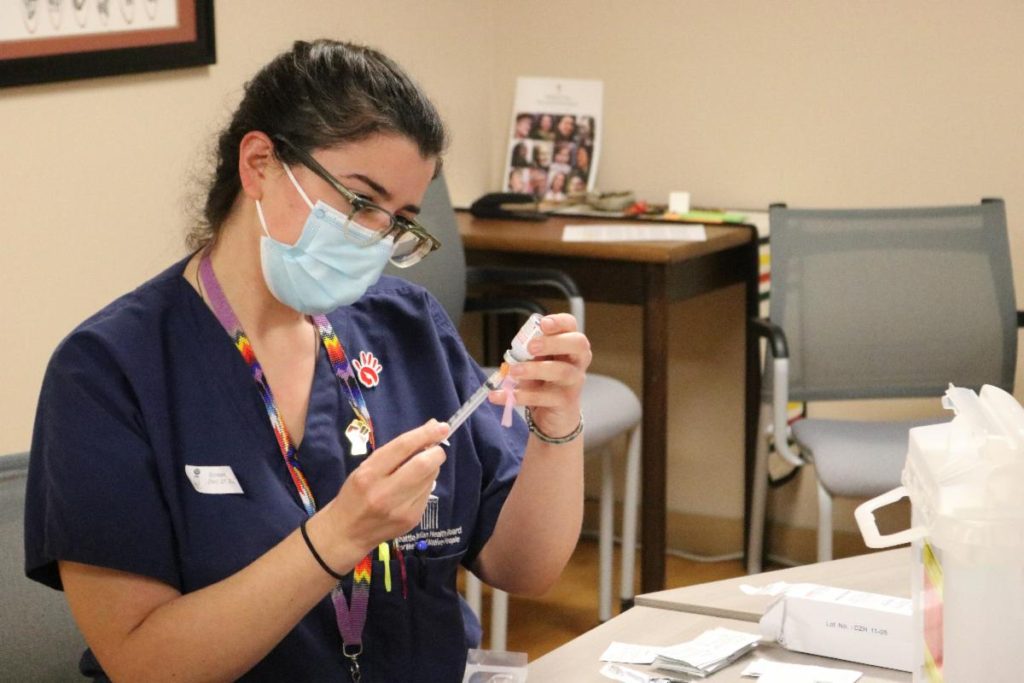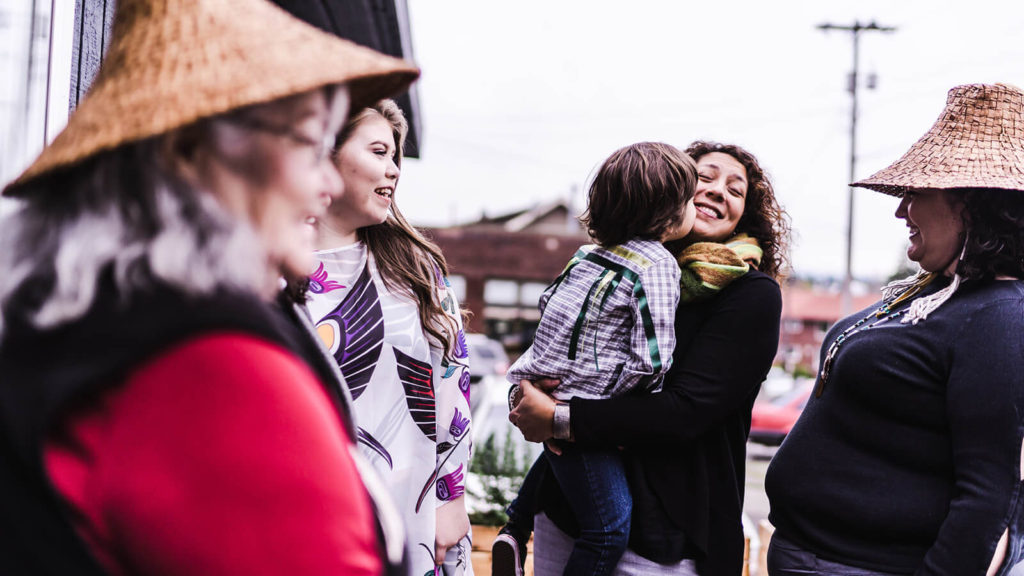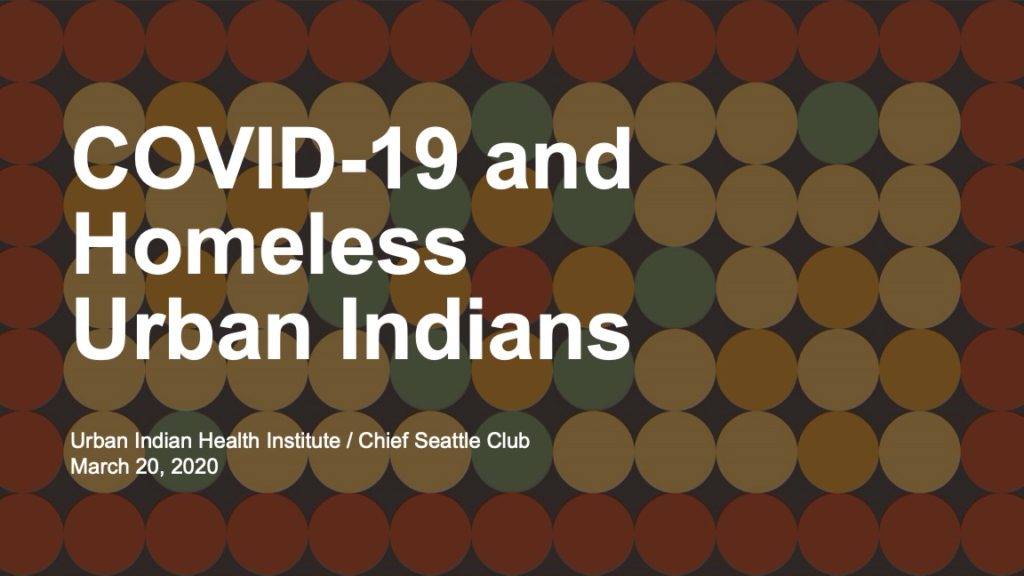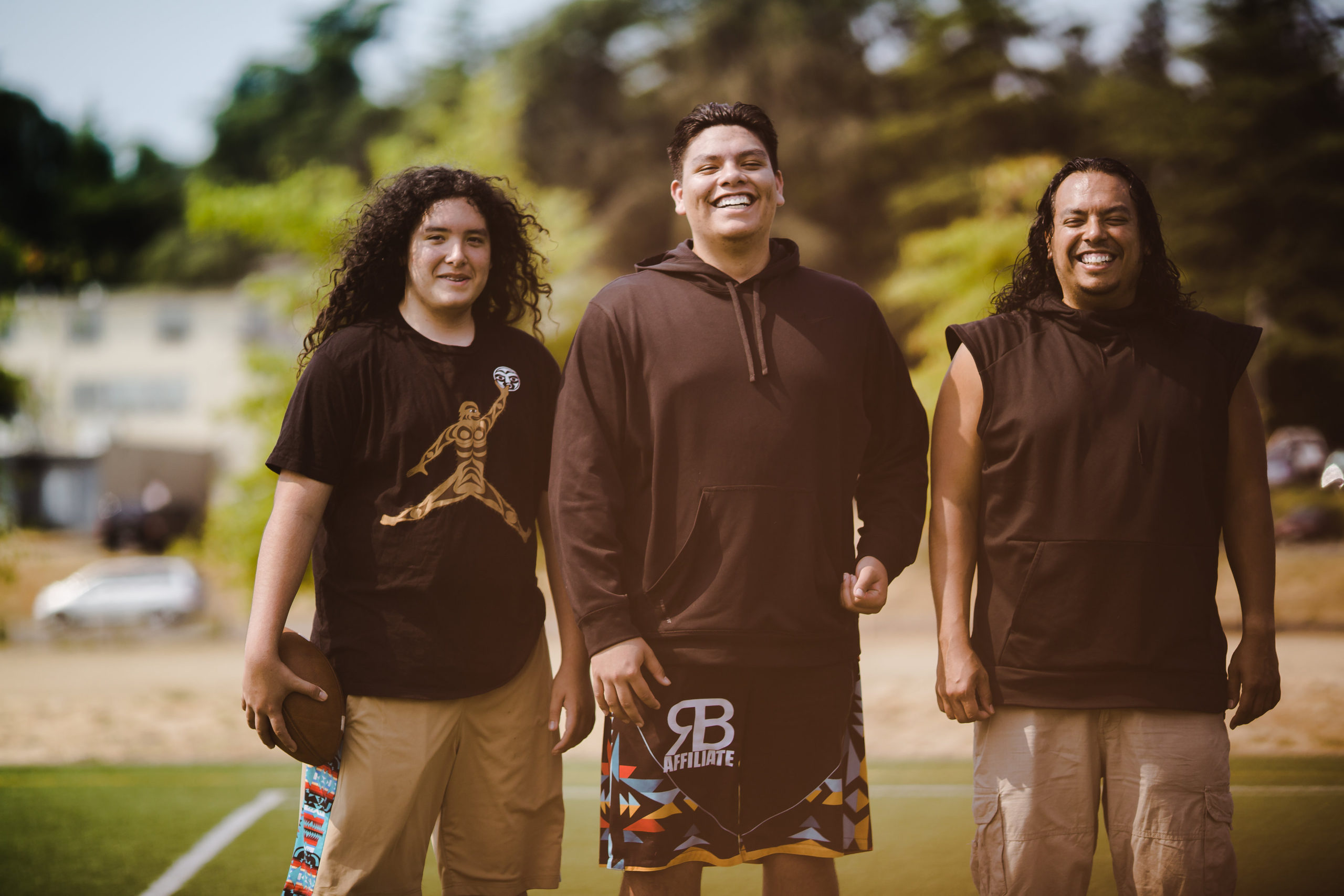As a public health authority, Urban Indian Health Institute has been responding to the COVID-19 pandemic. We are creating resources for tribes and urban Indian-serving organizations as well as healthcare providers and community members to help ensure that information is shared to keep our relatives safe and healthy.
We are monitoring the situation closely and creating new resources when we see a gap in information while also updating the resources we have already created.
COVID-19 Vaccines
Find resources and information about the COVID-19 vaccines

COVID-19 Treatments Map
It’s as important as ever for everyone to know where they can get treatment to mitigate the worst outcomes of COVID-19 if infected. However, precise information about where to go for treatment after testing positive has not been widely available for patients or the providers who treat them.
In response, our team has created an interactive map of COVID-19 treatment locations, referral sites, and open clinical trials in the state of Washington. For each site, we’ve included the type(s) of treatment available, contact information, and more.
Treatments are currently being administered to non-hospitalized patients who test positive for COVID-19 and are most effective when administered within 10 days of showing symptoms. Access to Monoclonal Antibody treatments is limited and may not be available when requested.
Please note that information listed in this map is constantly changing and we will work to keep the map up to date to reflect those changes.
COVID-19 Data Resources for Urban Native Communities
COVID-19 Data Dashboard
Find COVID-19 data on American Indians and Alaska Natives
COVID-19 Urban Indian Organizations Service Area Site Reports
Explore COVID-19 case surveillance information by Urban Indian Organization service area
Recommendations
Best Practices for American Indian and Alaska Native Data Collection
Learn best practices for collecting data on American Indian and Alaska Native populations.
Updated on August 26, 2020

Fact Sheets for Tribes and Urban Indian Communities
These resources focus on the impact COVID-19 has across Indian Country including tribes, Urban Indian Organizations, and urban Indian communities.
View a collection of all fact sheets here
For General Public
COVID-19 Fact Sheet (Updated January 2025)
This fact sheet contains updated information about COVID-19 vaccines for the general public.
Updated on January 2, 2025
mRNA COVID-19 Vaccines for Children Under 5
This fact sheet contains information about the mRNA COVID-19 vaccines for children under five (Moderna and Pfizer-BioNTech) to help you make an informed decision about your child’s vaccination.
Updated on July 12, 2022
Protecting Our Relatives: Safe and Proper Cleaning and Disinfecting for COVID-19
Learn more about safe and effective cleaning and disinfecting strategies to combat the spread of COVID-19.
COVID-19 Information for the General Public
Learn about preventing the spread of COVID-19 and what to do if you think you have or have been exposed to the virus.
Updated June 17, 2021
COVID-19 Information for High-risk Individuals
Learn how to protect yourself if you are at a higher risk of contracting COVID-19.
Updated March 30, 2021
COVID-19 Information for People Living with HIV
Learn about how people living with HIV can protect themselves from COVID-19.
COVID-19 Information for Native Cancer Patients and Survivors
Find out how to protect cancer patients and survivors during the COVID-19 pandemic.
Updated on June 8, 2020
Physically Distant but Socially Close: Indigenous Resilience and COVID-19
Find ideas on how to adapt our cultural practices and love our people in new ways.
Updated on July 1, 2021
How to properly wear and care for your fabric face mask
Learn how to properly wear and care for your fabric face mask.
Urban Indian Dictionary Coloring Pages
Download these coloring pages by Megan McDermott (Blackfeet/Cree) to help you de-stress during this trying time.
For Providers, Clinics, and Organizations
STDs During the COVID-19 Pandemic
Learn about the impact COVID-19 has had on STD testing and treatment.
PrEP Guidelines During the COVID-19 Pandemic
Learn about how COVID-19 has affected the prescribing and use of PrEP.
COVID-19 Conversations with Teens
Learn how to have conversations about COVID-19 with teenagers.
COVID-19 Information for Healthcare Personnel
This resource is for people who work directly with patients who may have or have been exposed to COVID-19.
COVID-19 Information for Providers
This resource is for those providing care to patients in a general setting, whether or not the patient feels they may have or have been exposed to COVID-19.
COVID-19: ICD-10-CM Official Coding Guidelines
This resource is for clinics and healthcare practitioners who code medical encounters.
Updated on June 8, 2020
COVID-19 Information for Employers
This resource is for employers to ensure they know how to educate their employees on best practices, keep their employees and patrons safe and healthy, and understand the recommendations on working from home and paid sick leave.
COVID-19 Information for Urban Native Homeless Service Providers
Learn how to keep our relatives experiencing homelessness safe during the COVID-19 pandemic.
Special Diabetes Program for Indians (SDPI): Mitigating COVID-19 Risk
Learn about the impact of COVID-19 and SDPI on American Indian and Alaska Native people with diabetes.
Updated on June 8, 2020
A Historical Trauma-informed Care Approach to COVID-19
Learn ways to support communities experiencing multiple traumas during the COVID-19 pandemic.
Updated on June 22, 2021
Webinars
COVID-19 and Homeless Urban Indians
Learn how to best care for our relatives who are experiencing homelessness during the COVID-19 pandemic.
Abigail Echo-Hawk (Pawnee) Director, Urban Indian Health Institute; Executive Vice President, Seattle Indian Health Board
Colleen Echo-Hawk (Pawnee) Former Executive Director, Chief Seattle Club; Founder, National Coalition to End Urban Indigenous Homelessness; CEO, Eighth Generation

External Resources
Resources from Partner Organizations
Supportive plants and foods do not provide immunity to COVID-19, and these resources are not intended to be used in diagnosis or prescription. Check with a healthcare provider to make sure that herbs are safe to use with any medications you are taking.
National Resources
The COVID-19 pandemic is ongoing and recommendations are continually changing. Below are links to national resources and information—we recommend checking these sites on a regular basis. For important COVID-19 information specific to your area, check your state and local health department website.
Centers for Disease Control and Prevention (CDC)
The central resource for COVID-19 information and updates, published via the federal government of the United States of America and the Centers for Disease Control and Prevention.
CDC: Guide to Infection Prevention for Outpatient Settings
The Centers for Disease Control and Prevention’s guide to COVID-19 infection prevention for outpatient settings.
Indian Health Service (IHS)
Up to date information on COVID-19 status via Indian Health Service and the U.S. Department of Health and Human Services.
IHS.gov: Coronavirus Disease 2019 (COVID-19)
Clinical resources for providers published via Clinician Outreach & Communication Activity (COCA) and the Centers for Disease Control and Prevention.
Standards of Care and Novel Coronavirus SARS-CoV-2
Clinical and technical guidance, billing, and coding guidance as well as Medicare, Medicaid, and Children’s Health Insurance Program (CHIP) coverage information.
Anti-Stigma Resources
King County Public Health Anti-stigma Resources
Resources and information on how to report discrimination, access workplace rights and responsibilities, and create social media to counteract COVID-19 stigma via King County and the State of Washington.
Speaking Up Against Racism Around the New Coronavirus
Information from the Southern Poverty Law Center about the historical context of associating marginalized people with COVID-19 and how to counteract racialized fear.

